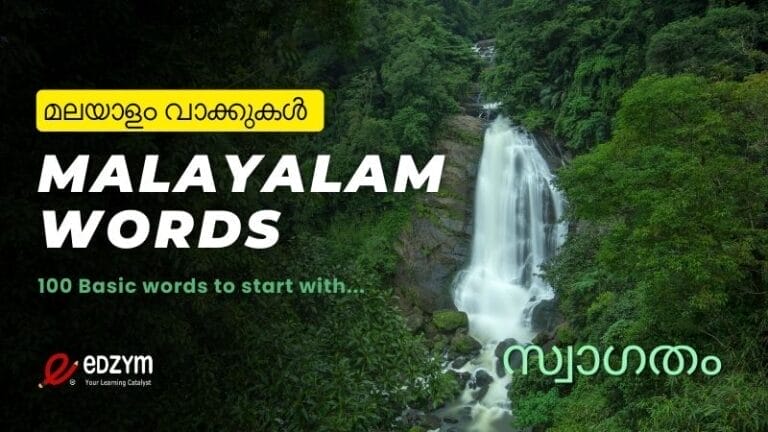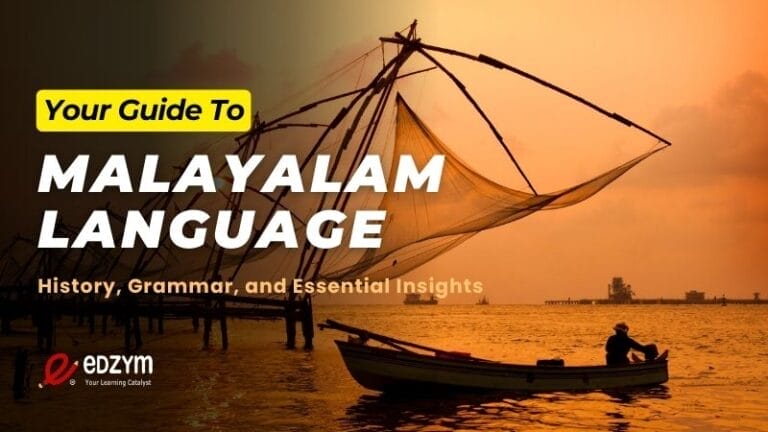Malayalam Poets: Masters of Lyrical Expression
Malayalam poetry is a treasure trove of literary expression, reflecting the vibrant culture and language of Kerala, a southern state of India. Spanning centuries, Malayalam poets have crafted a wide array of literary works, from ancient hymns and classical epics to contemporary verses that resonate with readers today. From ancient hymns and classical epics to modern verses exploring contemporary issues, Malayalam poets have contributed immensely to both the cultural heritage of Kerala and the broader landscape of Indian literature.
In this article, we will explore the journey of Malayalam poets, from the early pioneers to the influential figures of today, highlighting their contributions and impact on poetry and society.
Section 1: Early Influences and Pioneers
Thunchaththu Ramanujan Ezhuthachan (16th century)
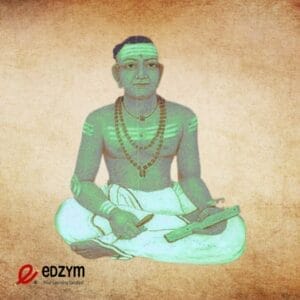
Thunchaththu Ramanujan Ezhuthachan, often revered as the father of Malayalam literature, made profound contributions that laid the foundation for Malayalam language’s literary development. His pioneering work includes translating the ancient Indian epic, the Ramayana, into Malayalam, making it accessible to a wider audience. Ezhuthachan’s poetic style, marked by its simplicity and lyrical beauty, continues to influence generations of poets and remains a cornerstone of Malayalam literary tradition.
Kunchan Nambiar (18th century)
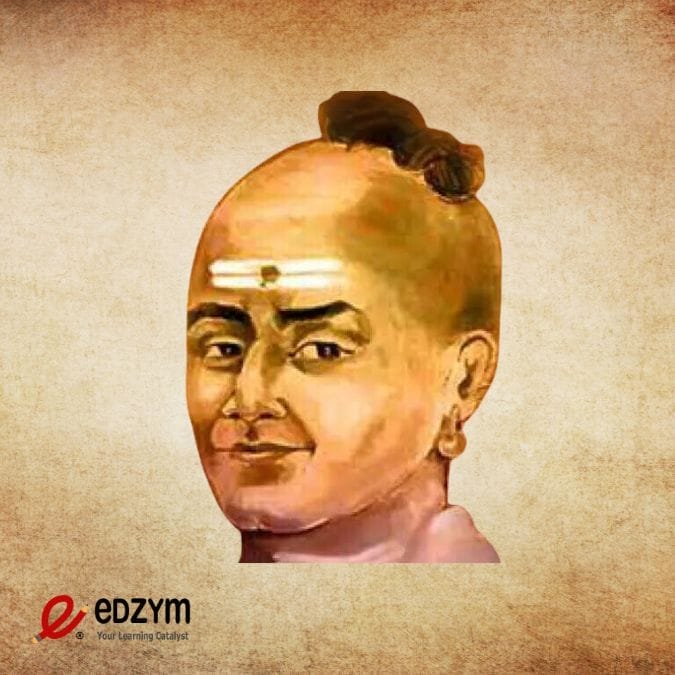
Kunchan Nambiar is celebrated for his satirical genius and his significant role in shaping Ottan Thullal, a vibrant art form in Kerala. Through his witty verses and theatrical performances, Nambiar brought social issues and political satire to the forefront, entertaining and enlightening audiences alike. His contributions not only enriched Malayalam literature but also revitalized traditional performing arts, leaving an indelible mark on both poetry and cultural expression in Kerala.
Cherussery (late medieval period)
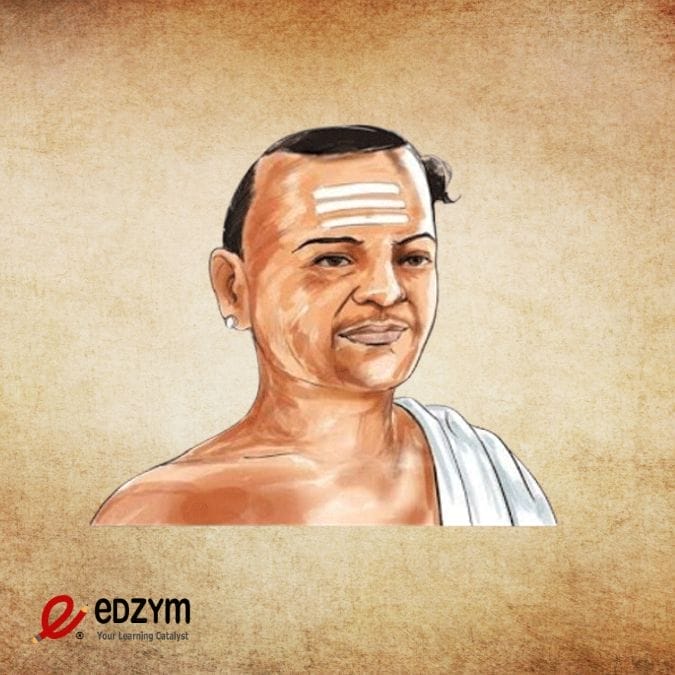
Cherussery was a renowned poet who is credited with composing the famous Krishnagatha, an epic poem that narrates the story of Lord Krishna in Malayalam verse. His work is highly regarded for its poetic excellence and contribution to the classical literary tradition of Kerala. Cherussery’s Krishnagatha remains a significant cultural and religious text in Malayalam literature, showcasing his mastery in storytelling and devotion to the mythological themes.
These pioneers—Thunchaththu Ramanujan Ezhuthachan, Kunchan Nambiar, and Cherussery—played pivotal roles in shaping the early foundations of Malayalam literature, each leaving a distinct and enduring legacy that continues to resonate through the centuries.
Section 2: Romanticism and Modern Malayalam Poetry
Kumaran Asan (1873-1924)
Kumaran Asan stands as a prominent figure of the Romantic movement in Malayalam literature. His poetry is celebrated for its philosophical depth and lyrical beauty, exploring themes of love, spirituality, and social reform. Asan’s works, such as “Veena Poovu” (The Fallen Flower), resonate with introspection and a keen sensitivity to human emotions, making him a revered poet in Kerala’s literary history.
Ulloor S. Parameswara Iyer (1877-1949)
Ulloor S. Parameswara Iyer was renowned for his scholarly pursuits and patriotic poetry that reflected his deep engagement with Indian culture and history. One of his most famous works is the epic poem “Umakeralam,” which spans 3000 lines and celebrates the cultural heritage and spirit of Kerala. Ulloor’s poetic compositions often explored themes of nationalism, cultural identity, and the spiritual essence of India. Ulloor’s works, characterized by their intellectual rigor and poetic eloquence, contributed significantly to the intellectual discourse and cultural renaissance of Kerala during his time.
Vallathol Narayana Menon (1878-1958)
Vallathol Narayana Menon was a towering figure in modern Malayalam poetry and a key architect of the cultural revival in Kerala. He was the founder of Kerala Kalamandalam, an institution dedicated to preserving and promoting classical arts. Vallathol’s poetry reflected a blend of classical traditions with modern sensibilities, addressing themes of social justice, humanism, and Kerala’s cultural heritage. His contributions extended beyond poetry to encompass literary criticism and cultural activism, leaving an indelible mark on Malayalam literature and cultural life.
When you learn Malayalam words through poetry, you’ll grasp how these poets—Kumaran Asan, Ulloor S. Parameswara Iyer, and Vallathol Narayana Menon—have enriched Malayalam literature with their contributions to both the Romantic (റൊമാൻ്റിക്) and modernist (ആധുനിക) movements. Each has uniquely contributed to the evolution of poetry and the cultural fabric (സാംസ്കാരിക വസ്തുത) of Kerala.
Section 3: Contemporary Poets
G. Shankara Kurup (1901 to 1978)
Renowned for his lyrical poetry, G. Shankara Kurup was the first recipient of the Jnanpith Award for Malayalam literature. His most famous work is “Odakkuzhal,” a poignant collection that explores themes of love, loss, and the human condition. Kurup’s poetry reflects a deep introspection into the complexities of human emotions, resonating with readers for its profound philosophical undertones.
Idassery Govindan Nair (1906 to 1978)
Known for his evocative and romantic poetry, Idassery Govindan Nair captured the essence of Kerala’s landscapes and emotions in his works. His notable poem “Mampazham” is celebrated for its lyrical beauty and depth of emotion. Nair’s verses evoke nostalgia and a deep connection to nature, portraying Kerala’s cultural ethos with vivid imagery.
Changampuzha Krishna Pillai (1911 to 1948)
Changampuzha Krishna Pillai is famous for his romantic poetry, particularly “Ramanan,” an epic poem that portrays the tragic love story of Ramanan and Chandrika. This work became a cultural phenomenon and remains popular in Kerala’s literary circles. Changampuzha’s portrayal of love and longing transcends time, capturing the universal themes of passion and heartbreak.
Vailoppilli Sreedhara Menon (1911 to 1985)
Vailoppilli Sreedhara Menon’s lyrical poetry often explored themes of love, nature, and social consciousness. His notable work “Sargasangeetham” is cherished for its melodious verses and philosophical insights into life and humanity. Menon’s poetry embodies a harmonious blend of aesthetic beauty and intellectual depth, offering profound reflections on the human condition and societal issues.
Ayyappa Paniker (1930 to 2006)
Ayyappa Paniker was a modernist poet and critic who played a significant role in shaping contemporary Malayalam poetry. His works often explored existential themes, blending traditional poetic forms with innovative expressions. Paniker’s critical insights and editorial contributions also enriched Malayalam literature by promoting experimental and avant-garde poetry. One of his notable work is Kurukshetra, a collection of poems exploring existential themes and human dilemmas.
Sugathakumari (1934 to 2021)
Sugathakumari was a poet, environmental activist, and feminist voice in Malayalam poetry. Her poetic verses often intertwined with themes of nature, social justice, and women’s rights. Sugathakumari’s activism extended beyond literature, advocating for environmental conservation and the welfare of marginalized communities. Her lyrical compositions continue to inspire readers with their evocative imagery and impassioned advocacy. Her poems Pathirappookkal, inspired by nature and environmental concerns, is a triumph of her talent.
These contemporary poets have made profound contributions to Malayalam literature through their poetic expressions, critical insights, and social activism, each leaving a lasting impact on the cultural and literary landscape of Kerala.
Section 4: Impact and Legacy
Influence on Culture and Society
Malayalam poetry holds a profound influence on Kerala’s cultural and social landscape, serving as a medium for expressing regional identity, societal values, and collective memory. From ancient times to the present day, poets have addressed diverse themes such as spirituality, love, nature, and socio-political issues, resonating deeply with readers and reflecting the evolving consciousness of Kerala’s people. Poetry festivals, literary gatherings, and cultural events continue to celebrate this rich heritage, reinforcing its integral role in Kerala’s cultural fabric. Their works also echo the timeless wisdom found in Malayalam pazhamchollukal.
Recognition and Awards
Malayalam poets have garnered prestigious awards that highlight their literary contributions and influence. Notable accolades include the Jnanpith Award, India’s highest literary honor, received by poets like G. Shankara Kurup and O. N. V. Kurup. The Kendra Sahitya Akademi Award and Kerala Sahitya Akademi Award also recognize excellence in Malayalam literature, honoring poets for their outstanding literary achievements and contributions to the field.
Translations and Global Reach
Translations of Malayalam poetry have facilitated its appreciation beyond Kerala, reaching a global audience and fostering cultural exchange. Works by renowned poets such as Kumaran Asan, Vallathol Narayana Menon, and contemporary poets like K. Satchidanandan have been translated into various languages, broadening their impact and visibility worldwide. These translations not only preserve the essence of Malayalam poetry but also enrich the global literary landscape, showcasing Kerala’s literary traditions and philosophical insights to an international readership.
Malayalam poetry continues to evolve, addressing contemporary issues while preserving its rich heritage, ensuring its enduring relevance and impact on literature, culture, and society.
Conclusion
In conclusion, Malayalam poets have left an indelible mark on literature and continue to inspire generations with their poetic brilliance, cultural insights, and enduring relevance in shaping both local and global literary landscapes. Their legacy underscores the timeless power of poetry to illuminate the human experience and provoke meaningful reflection on life, society, and the world around us. At the heart of this tradition lies the Malayalam Aksharamala, the alphabet that forms the basis of the language’s written form and poetry.
If you’re interested in learning more about the famous Malayalam poets and their works, we can help you with our online Malayalam course. Book now for a free session!






